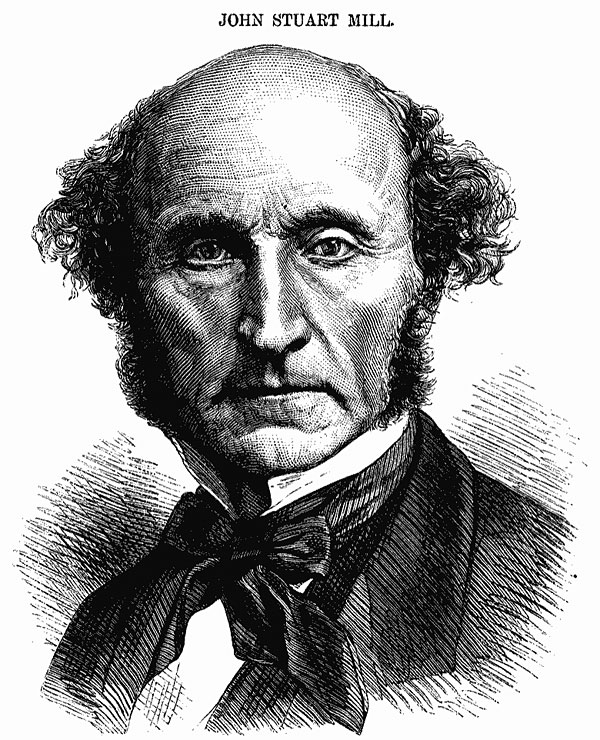
I was pleased to read Adam Gopnik’s report this week on Richard Reeves’s new biography, John Stuart Mill: Victorian Firebrand (Overlook). Mill (1806-1873), writer of On Liberty and The Subjection of Women, is most famous for his arguments for the equality–regardless of race or gender–of all peoples, and for insisting upon freedom in all human activity, beginning with the activity of thought itself. As Gopnik puts it, Mill’s life and work was and remains an object lesson in a maxim infrequently conceded: “Nothing is worse for being looked at.”
One thing no worse for being looked at is Mill’s writing itself. The story of Mill’s style, of its great nuance and purity, is the story of his being the child of social reformer James Mill. Mill père had his son begin learning classical Greek at age three–and never let up after that. As such, the son’s manifest native gifts, when molded by his father’s didactic extremism, forged a little Mozart whose instrument was the mind itself.
That story is told nowhere better than by the son, in his own Autobiography. It is one of my favorite books, a drama of self-invention under extreme duress, the pressure of a father of whom Mill writes, “The element which was chiefly deficient in his moral relation to his children, was that of tenderness.” And:
If we consider further that he was in the trying position of sole teacher, and add to this that his temper was constitutionally irritable, it is impossible not to feel true pity for a father who did, and strove to do, so much for children, who would have so valued their affection, yet who must have been constantly feeling that fear of him was drying it up at its source. This was no longer the case, later in life and with his younger children. They loved him tenderly: and if I cannot say so much of myself, I was always loyally devoted to him. As regards my own education, I hesitate to pronounce whether I was more a loser or gainer by his severity.
Taken in whole, Mill’s Autobiography shows the uneasy inner balance of that great mind’s inarguable gains warring with the losses that such a mind too sustained, tethered as it was to an enormous heart. I propose Mill’s short and superb book, available for free here, in a nice scanned book, as your weekend read.





